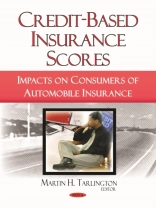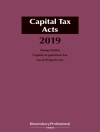Section 215 of the FACT Act (FACTA)1 requires the Federal Trade Commission (FTC or the Commission) and the Federal Reserve Board (FRB), in consultation with the Department of Housing and Urban Development, to study whether credit scores and credit-based insurance scores affect the availability and affordability of consumer credit, as well as automobile and homeowners insurance. FACTA also directs the agencies to assess and report on how these scores are calculated and used; their effects on consumers, specifically their impact on certain groups of consumers, such as low-income consumers, racial and ethnic minority consumers, etc.; and whether alternative scoring models could be developed that would predict risk in a manner comparable to current models but have smaller differences in scores between different groups of consumers. The Commission issues this report to address credit-based insurance scores primarily in the context of automobile insurance. Credit-based insurance scores, like credit scores, are numerical summaries of consumers’ credit histories. Credit-based insurance scores typically are calculated using information about past delinquencies or information on the public record (e.g., bankruptcies); debt ratios (i.e., how close a consumer is to his or her credit limit); evidence of seeking new credit (e.g., inquiries and new accounts); the length and age of credit history; and the use of certain types of credit (e.g., automobile loans).
Martin H Tarlington
Credit-Based Insurance Scores [PDF ebook]
Impacts on Consumers of Automobile Insurance
Credit-Based Insurance Scores [PDF ebook]
Impacts on Consumers of Automobile Insurance
购买此电子书可免费获赠一本!
格式 PDF ● 网页 163 ● ISBN 9781617282133 ● 编辑 Martin H Tarlington ● 出版者 Nova Science Publishers ● 发布时间 2018 ● 下载 3 时 ● 货币 EUR ● ID 7228476 ● 复制保护 Adobe DRM
需要具备DRM功能的电子书阅读器












